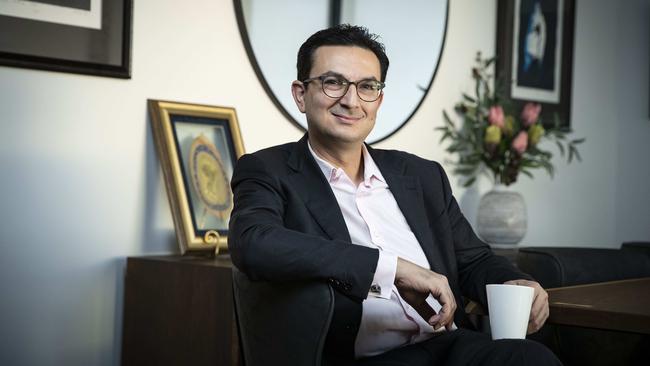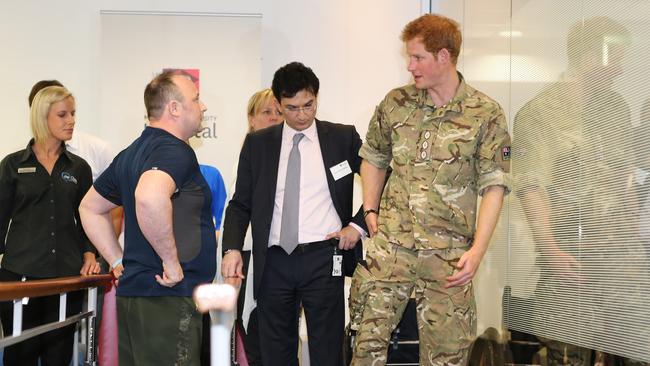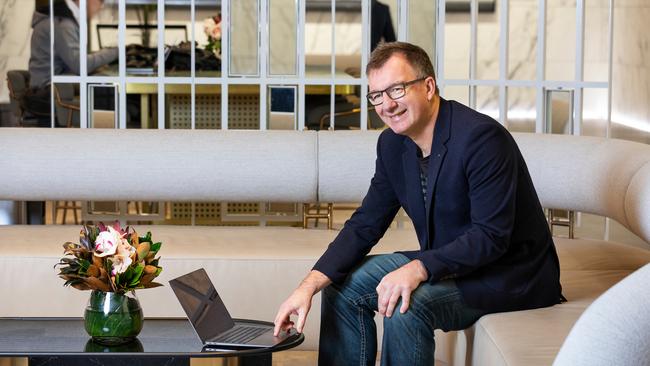Medibank partners with doctors to build $29.6m no-gap orthopaedic centre in third hospital deal
Medibank will build a new $29.6m orthopaedic centre at Macquarie University Hospital in northwestern Sydney in partnership with a group of surgeons.

Medibank will build a new $29.6m orthopaedic centre at Macquarie University Hospital in northwestern Sydney in partnership with a group of surgeons.
It is the third hospital deal Australia’s biggest health insurer has struck as it advances its no-gap, short stay model.
For high profile surgeon, Munjed Al Muderis, the idea of removing uncomfortable discussions with patients who have knee, hip and other joint pain, was a key part of him supporting the deal.
“I’ve always believed that the Australian health system is one of the best. However, it is not perfect,” Dr Al Muderis said.
“Even if the patient has full private cover, they still get hit with out-of-pocket expenses, and that is out-of-pocket fees for the surgeon, the anaesthetist, bills from the pathology labs, X-rays – all of these can come as a surprise to a patient.
“It makes the situation very uncomfortable. So that’s one angle to it.”
The model is focused on shortening hospital stays for patients, allowing them to recuperate in their own home and receive follow-up care from a multidisciplinary team, including nurses and allied health professionals such as physiotherapists.
Savings are then diverted into surgery fees, eliminating out-of-pocket fees, which can total near $5000 in capital city markets, with at home rehabilitation costing about a third of the cost of a hospital stay
Dr Al Muderis – who has helped soldiers walk again, attracting the attention of Prince Harry – said Medibank’s short stay model was bringing Australia more into line with overseas jurisdictions.

“I worked internationally in the US and in Europe, and this model of care has been the standard model of care in many countries and has been used very successfully in many developed countries around the world. And I think Australia needs to catch up. I see it as a positive thing.”
But Dr Al Muderis was adamant it was not a step towards US-style managed care, in which health funds have a greater say over a patient’s treatment.
“This is not managed care as what some people may claim it to be. It is more patient centred care where there is a concentrated effort toward getting the patient well enough, mobile enough, as efficient enough to their normal into their normal environment basically with the support of the medical and allied health staff.”
Medibank will split the cost with the group of surgeons, contributing $14.6m to build the 29-bed centre, which will be housed on the fifth floor of Macquarie University Hospital and open late next year.
Medibank began investing in hospitals in August 2020 when it acquired a 49 per cent stake in East Sydney Private Hospital at Woolloomooloo. It has also struck a joint venture with a group of 42 doctors to build a new $64m hospital in Melbourne.
Chief executive David Koczkar said the $10bn company had set aside $250m to advance its strategy of becoming solely a hospital funder to hospital owner, with the move aimed at taking pressure off premium rises and delivering greater value to members.
KPMG found the short stay model could halve the length of a hospital for hip and knee replacements, and if it was adopted more broadly could save 217,000 bed days by 2030.
Medibank health services boss Andrew Wilson said so far the model has saved a patient on average $1200 and up to $4,700 for more complex procedures.

“This can make a real difference to household budgets at a time when the cost of living is increasing,” he said.
As well as investing in hospitals, Medibank is also expanding what it calls its “contracted network”, which also offers a no-gap model among certain surgeons.
“The majority of our members now have access to a (no-gap) facility within 20 kilometres of their place of residence,” Dr Wilson said.
“So it‘s important for us to get scale both in terms of invested but also contracted partner hospitals where it’s similar model of care can be put in place. It’s a dual tracked strategy and we think they’re quite synergistic between the two and we’re very happy to partner with like minded hospital groups to put in place a similar model of care.”
Macquarie University Hospital chief executive Walter Kmet said the centre would champion the hospital’s philosophy of excellence in evidence-based medicine.
“We are a university health sciences centre that‘s focused on quality innovation. So absolutely, we want to take on things that are at the front of the opportunity curve, and I think that inevitably leads us to a leadership position and … potentially being a first mover in this area,” Associate Professor Kmet said.





To join the conversation, please log in. Don't have an account? Register
Join the conversation, you are commenting as Logout